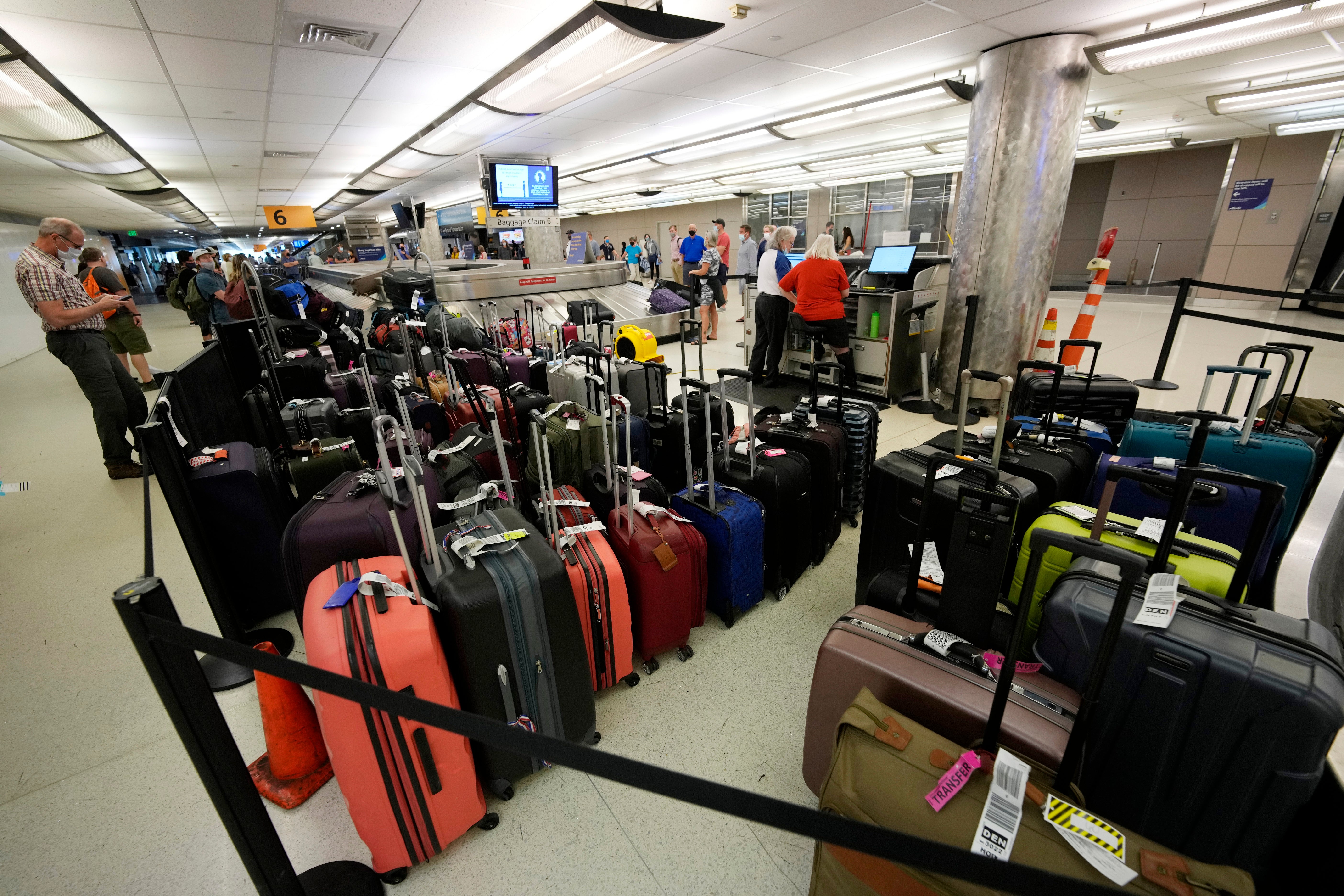US plans to make airlines refund fees if bags are delayed
The Biden administration is planning to require that airlines refund fees on checked baggage if the bags get seriously delayed

Your support helps us to tell the story
From reproductive rights to climate change to Big Tech, The Independent is on the ground when the story is developing. Whether it's investigating the financials of Elon Musk's pro-Trump PAC or producing our latest documentary, 'The A Word', which shines a light on the American women fighting for reproductive rights, we know how important it is to parse out the facts from the messaging.
At such a critical moment in US history, we need reporters on the ground. Your donation allows us to keep sending journalists to speak to both sides of the story.
The Independent is trusted by Americans across the entire political spectrum. And unlike many other quality news outlets, we choose not to lock Americans out of our reporting and analysis with paywalls. We believe quality journalism should be available to everyone, paid for by those who can afford it.
Your support makes all the difference.The Transportation Department will propose that airlines be required to refund fees on checked baggage if the bags aren't delivered to passengers quickly enough.
The proposal, if made final after a lengthy regulation-writing process, would also require prompt refunds for fees on extras such as internet access if the airline fails to provide the service during the flight.
A department official said the agency will issue the proposal in the next several days, and it could take effect by next summer.
The proposal will require refunds if airlines fail to deliver a bag within 12 hours of the passenger's U.S. flight touching down or within 25 hours after an international flight.
Current regulations require refunds only if bags are lost, although airlines must compensate passengers for “reasonable” incidental expenses incurred while their bags are delayed. The government does not know how often airlines keep fees even when bags are significantly delayed.
The bag-fee proposal is the first of several airline-consumer regulations coming from the Biden administration, according to a senior Transportation Department official, who spoke on condition of anonymity to discuss a proposal that hasn’t been made public.
Last year, more than 100,000 consumers complained to the government about airline service. Refunds were the biggest gripe, although most claimed airlines refused to give refunds to consumers who canceled trips because of the pandemic. The Transportation Department is seeking a $25.5 million fine against Air Canada but has not taken action against other carriers over refunds for canceled flights.
In 2019, the last full year before the pandemic, passengers paid U.S. airlines $5.76 billion in fees on checked bags, according to the Transportation Department. That dropped to $2.84 billion last year, when travel slumped because of the pandemic. The figures do not include fees for carry-on bags.
For many years, customers could check one or two bags on almost any airline without paying a fee. That began to change during a travel slump caused by the financial crisis of 2008. Now, most U.S. airlines other than Southwest charge even for a single bag, although fees are usually waived for customers who buy high-fare tickets or carry the airline's credit card.
American Airlines generated $2 billion from checked-bag fees over the past two years, followed by Delta Air Lines and United Airlines each around $1.5 billion. Because of their smaller size, discount airlines including Spirit and Frontier reap less money but get a higher percentage of revenue from the fees.
___
David Koenig can be reached at www.twitter.com/airlinewriter